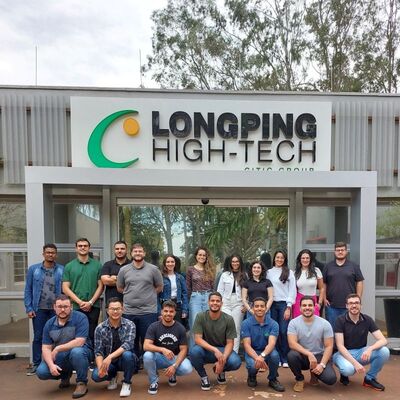Tapping Brazil soybean variety: A new opportunity for Dodoma’s land
In a groundbreaking showcase at the 2024 Nane Nane Agricultural Exhibition in Dodoma, the Brazilian company Longping has demonstrated that the region’s land, often dismissed as arid and unproductive, is fertile and primed for profitable soybean farming. The company’s thriving soybean plot proved that Dodoma’s soil can support this highly valuable crop, challenging preconceived notions about the region’s agricultural potential.
During an interview on August 1st, Mr. Michael Bishubo, a representative from Longping, emphasized the company’s goal at the exhibition: to inspire and educate the people of Dodoma on the immense possibilities of soybean cultivation. He highlighted the success of their farm in Songwe, where the first harvest yielded an impressive 2.7 tons of soybeans per acre. This bountiful yield was a testament to the region’s potential and commercial success, with the entire harvest quickly sold within the local market.
Recognizing the rising global and domestic demand for soybeans, Longping is now setting its sights on expanding its operations to Dodoma, specifically in the Ndogowe area. Mr. Bishubo revealed that the company is committed to working closely with local farmers, including plans to purchase soybeans produced by the BBT Youth farm in Ndogowe. This initiative is part of a broader strategy, including developing a massive 10,000-hectare farm in Mkulazi, Morogoro. Longping’s expansion reflects its confidence in the region’s agricultural future and its dedication to contributing to that growth.
The soybean variety MG3801, which Longping has successfully introduced, is particularly well-suited to Dodoma’s climate and soil. It has shown remarkable adaptability, flourishing across various agricultural zones with a growth cycle of 110 to 120 days. Beyond its ease of cultivation, soybeans are a versatile crop that can be processed into a wide range of products, including oil, food for human consumption, and animal feed. As a legume with high protein content, soybeans are increasingly recognized for their nutritional value and economic potential.
The soybean variety MG3801 originates from Brazil. It is one of the high-performing soybean varieties developed to adapt to various climates and soil conditions, particularly in tropical and subtropical regions. The variety is known for its resilience, high yield potential, and suitability for cultivation in regions like Dodoma, where it has shown promising results.
This development presents a golden opportunity for the farmers of Dodoma. With most soybeans currently being imported from Zambia, local producers could exploit a vast, untapped market. Longping’s success story serves as both a beacon and a call to action for farmers in Dodoma: the region’s land is ready, the market is eager, and the time for soybean cultivation is now.
The message from Longping and the agricultural community is clear: Dodoma has the potential to become a key player in the soybean industry, and local farmers are encouraged to embrace this opportunity and contribute to a new chapter of agricultural prosperity in the region.
Tanzania is making significant strides in expanding its soybean production. The Tanzania Sustainable Soybean Initiative (TSSI), spearheaded by SAGCOT, is pivotal in strengthening the soybean sector in SAGGOT initiative, which is set to transform into agricultural growth Corridors of Tanzania, AGCOT, after a presidential directive. Through a focus on sustainable farming practices, yield enhancement, and smallholder farmer integration into the value chain, TSSI is helping establish soybean as a key crop in Tanzania.














